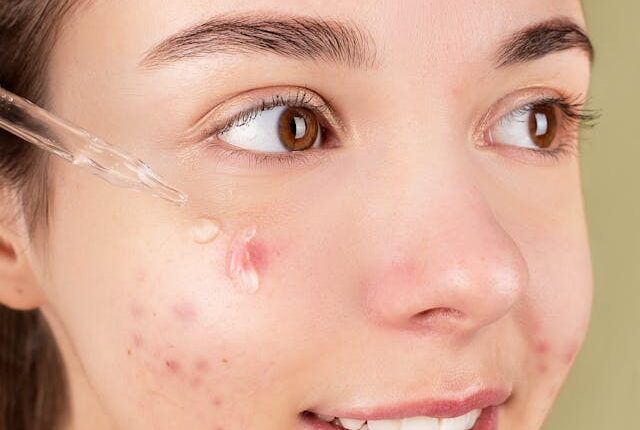Skin irritations are common issues that can affect anyone at any age. They can range from mild discomfort to severe conditions, impacting your quality of life. Understanding the common skin irritants and learning how to combat them can help you maintain healthy, comfortable skin.
1. Harsh Soaps and Detergents
Using harsh soaps and detergents can remove the natural oils from your skin, causing dryness and irritation. Opt for gentle, fragrance-free cleansers and detergents. Look for products labeled “hypoallergenic” or “for sensitive skin.” Moisturize immediately after washing to lock in hydration.
2. Chemical Exposures
Exposure to chemicals in household cleaners, cosmetics, and skincare products can cause skin irritation. Always wear gloves when handling cleaning products, and choose cosmetics and skincare items free from harmful chemicals like parabens, sulfates, and artificial fragrances.
3. Weather Conditions
Extreme weather conditions, such as cold winds and low humidity in winter or excessive heat and humidity in summer, can irritate the skin. Protect your skin by wearing appropriate clothing and sunscreen year-round and moisturizing regularly. Bringing in some extra moisture during the winter months is a good idea by using a humidifier.
4. Allergens
Common allergens, including pollen, pet dander, and certain foods, can trigger skin reactions. Identify and avoid your specific allergens. If you have a known allergy, keep your environment clean, use air purifiers, and follow any dietary restrictions recommended by your healthcare provider.
5. Fabrics and Clothing
Certain fabrics, such as wool or synthetic materials, can irritate sensitive skin. Opt for soft, breathable fabrics like cotton. Wash new clothes before wearing them to remove any chemical residues from manufacturing. Use hypoallergenic laundry detergents to avoid further irritation.

6. Insect Bites
Insect bites can cause itching and irritation. To prevent bites, use insect repellent when spending time outdoors, especially during peak insect activity times. Wear long sleeves and pants, and avoid standing water where mosquitoes breed. If bitten, apply a cold compress and over-the-counter anti-itch cream.
7. Friction and Pressure
Constant friction or pressure from tight clothing, shoes, or accessories can lead to skin irritation and conditions like blisters or calluses. Wear properly fitting clothes and shoes, and take breaks to relieve pressure points. Use protective padding if necessary.
8. Sweat and Humidity
Excessive sweating, especially in hot and humid conditions, can cause skin irritation and lead to conditions like heat rash. Wear loose, breathable clothing and stay in cool, air-conditioned environments when possible. Shower and change clothes frequently to keep your skin clean and dry.
9. Cosmetic Products
Certain cosmetic products, including makeup and hair care items, can cause skin irritation, especially if they contain harsh chemicals or fragrances. Remember to select skincare products that are labeled as non-comedogenic, as these are less likely to clog pores and cause breakouts. Additionally, opt for products designed specifically for sensitive skin to minimize the risk of irritation or allergic reactions. Before incorporating a new product into your routine, it’s important to conduct a patch test by applying a small amount to a discreet area of your skin to check for any adverse reactions such as redness, itching, or burning.
10. Sun Exposure
Prolonged sun exposure can cause sunburn, dryness, and long-term skin damage. Protect your skin by wearing broad-spectrum sunscreen with an SPF of 30 or higher, reapplying every two hours, and wearing protective clothing, hats, and sunglasses.
11. Stress
Stress can exacerbate skin conditions like eczema, psoriasis, and acne. Practice stress management techniques such as mindfulness, meditation, yoga, and regular exercise. Ensure you get adequate sleep and maintain a balanced diet to support overall skin health.
12. Dehydration
Dehydrated skin is more prone to irritation. Make sure to drink enough water throughout the day to keep your skin hydrated and glowing from the inside out. Use a hydrating moisturizer and consider incorporating a hydrating serum into your skincare routine.
13. Medical Conditions
Certain medical conditions, such as eczema, psoriasis, and rosacea, can cause chronic skin irritation. Work with a dermatologist to develop a treatment plan tailored to your condition. Follow their recommendations for medication, topical treatments, and lifestyle changes.
Conclusion
Combatting common skin irritants involves a combination of preventive measures and effective treatments. By identifying the irritants that affect you and taking proactive steps to avoid them, you can maintain healthier, more comfortable skin. If you experience persistent or severe skin irritation, consult a dermatologist to address the underlying causes and receive appropriate care. Your skin is your body’s largest organ, and taking care of it is important and necessary for your well-being.









